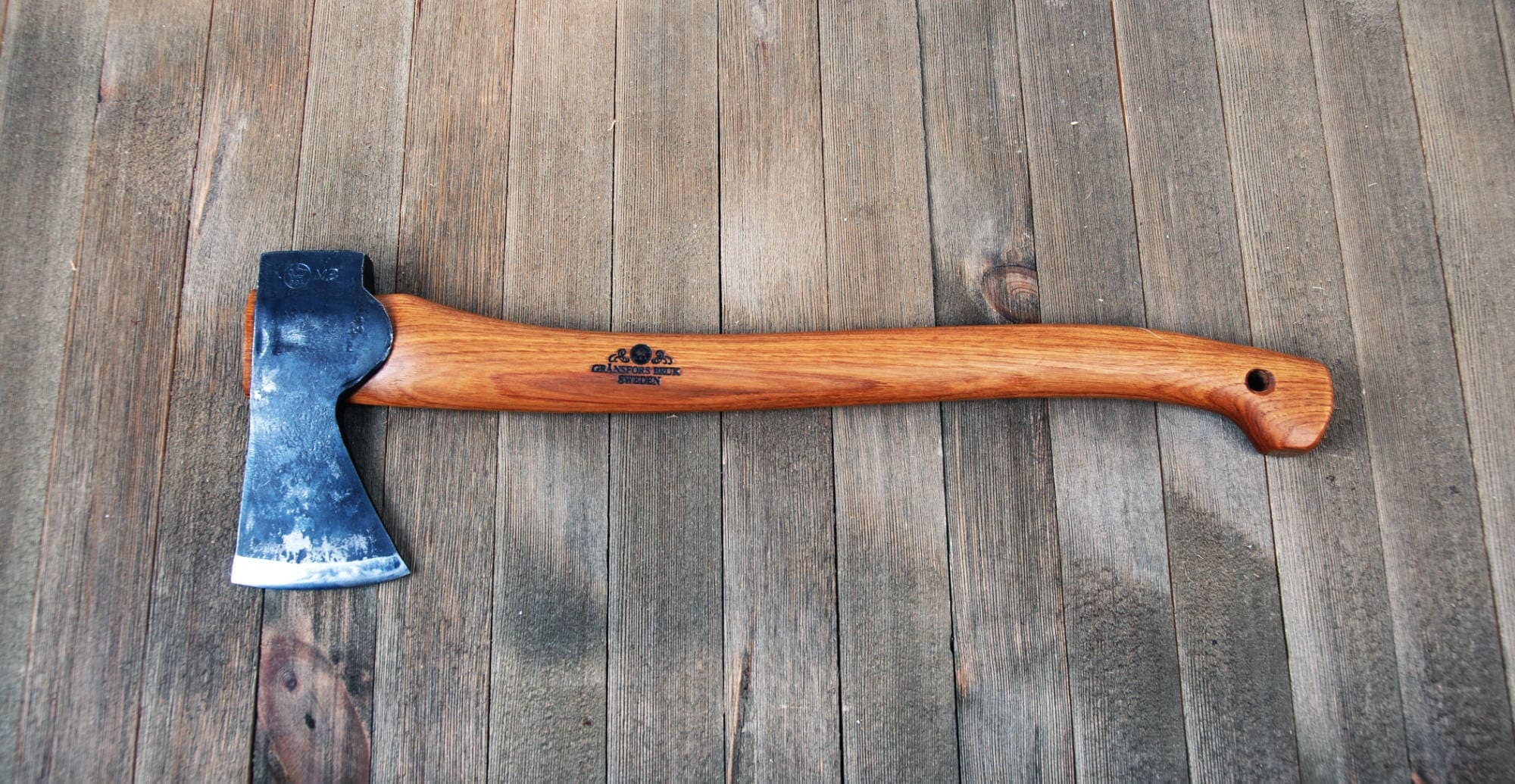
Anatomy of an Axe from Poll to Palm Swell Ancient Path
parts of an axe Contents [ Show] What Is An Axe An axe is for chopping down or cutting down large trees. An axe can also assist with splitting wood or shaping wood into smaller pieces. Axes also serve as a weapon for protection and have been in use in some form for centuries. An axe or broad axe typically requires two hands to wield. axe

A short guide to axes Jack Raven Bushcraft
There are 11 parts of an axe: Bit Butt or Poll Toe Heel Cheek Beard Shoulder Belly Throat Eye Knob Do you know the parts of an Axe? We have collected the definitive list of axe terms, added some helpful diagrams, and provided a quick description for your reference. This crash course in axe anatomy is a great introduction to axe terminology.
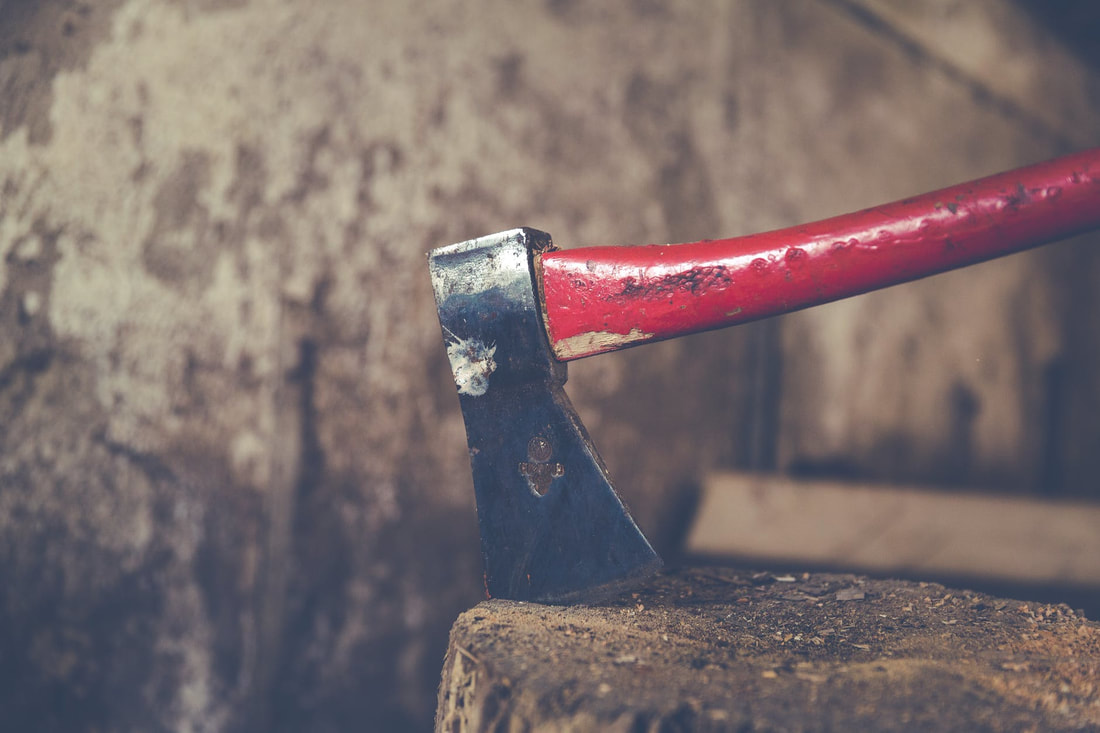
Parts of an Axe and their capacity
1: Eye 2: Butt 3: Head 4: Edge 5: Lug 6: Handle 7: Lanyard hole 8: Knob The head of the axe The head of the axe is comprised of many different parts. The most important are: cheek, butt, lug, eye, heel, tip and edge. The lug of the axe enlarges the contact surface between the axe and the handle. As such the handle is properly secured in the head.

The Anatomy Series The Parts of An Axe YouTube
You can divide it into two main parts: the Head and the Haft. Starting at the bottom of the haft, or handle, we have the End Knob. The end knob provides extra material to help prevent the axe from slipping out of your grip. Above the end knob, the haft curves back. This is the Throat.
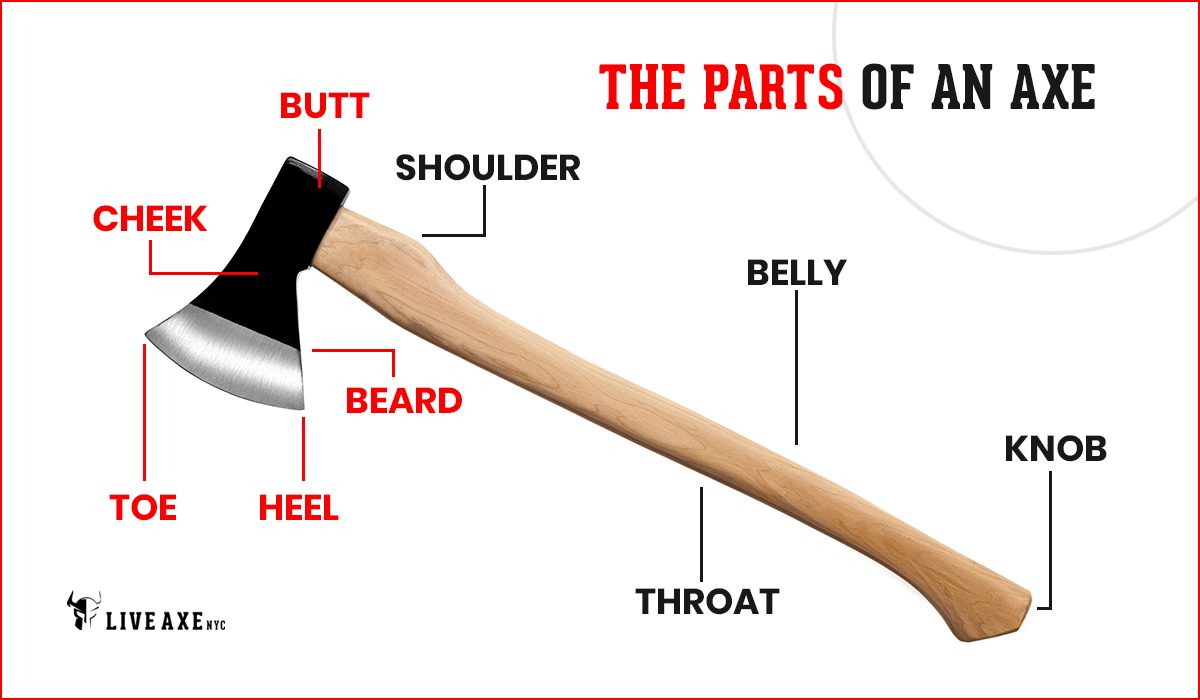
Different Types of Throwing Axes LIVE AXE NYC
What Are the Parts of an Ax? Parts of an Ax Diagram Ax anatomy generally recognizes two main parts: a head made of metal or stone (depending on your century of origin) and a lighter handle, which is usually made of wood. So, where do all these parts come into play?
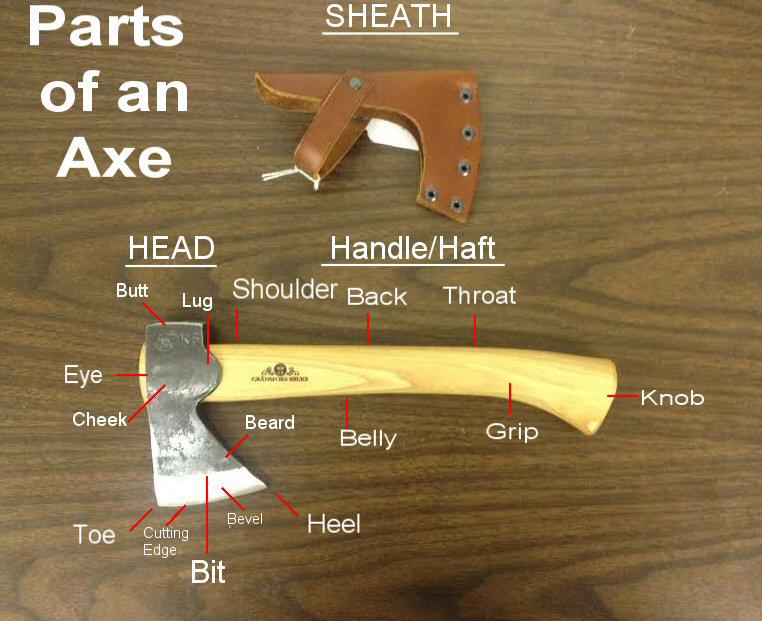
/Explore Axe Basics
In between the belly and the head of the axe is the shoulder. Gripping the shoulder allows the best control of the axe but provides little power. It's best to grip the shoulder when doing high-precision work. The back of the handle is where all the parts of the handle are joined. The back provides support and a better grip for the user.
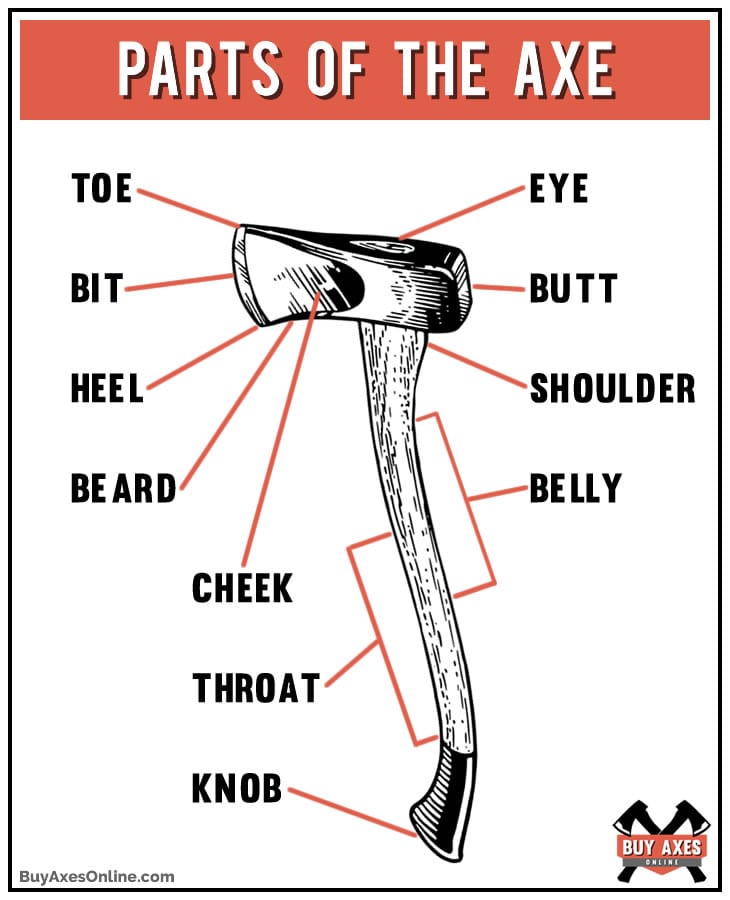
Axe Anatomy Identifying The 11 Parts of an Axe Buy Axes Online
There's quite a bit of specialized language around axes. This video breaks down what the different parts of an axe are, and goes a little into explaining wha.
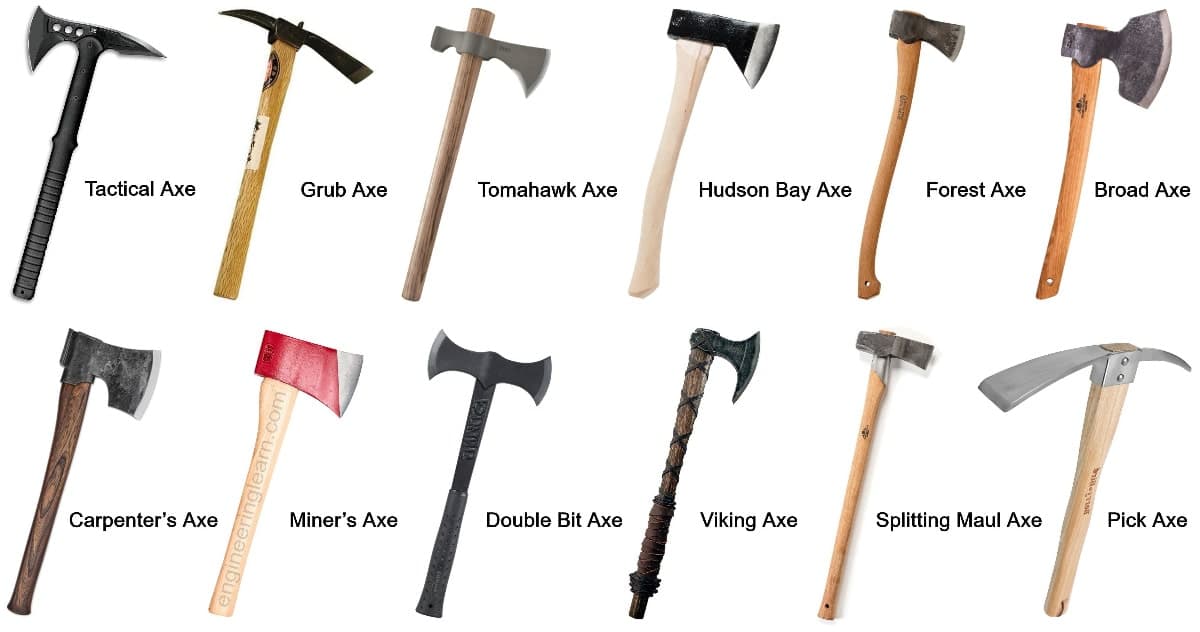
23 Types of Axes Types of Axe Heads and Their Uses [Explained with
The axe head has a bit, toe, heel, beard, cheek, and butt; the axes handle comprises an eye, knob, throat, belly, and shoulder. Check out the axe diagram below for a quick overview. The anatomy of an axe 1. Head The axe's head is the hard section of the tool which does the cutting.

The Parts of an Axe [INFOGRAPHIC]
The two main parts of an axe are the head and the handle, which we'll discuss in detail below: 1. Axe Head. An axe head has two ends — the bit on one side and the butt on the other. Often called the axe's "business end," the head serves as a mechanical wedge. The sharpness of the bit, combined with the user's kinetic energy, makes.
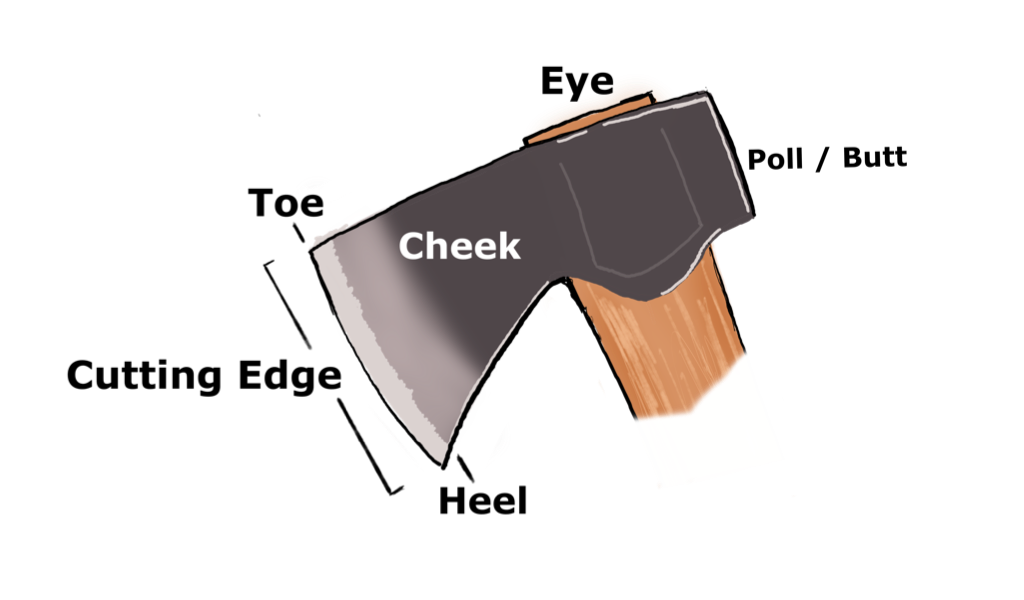
Parts_of_Axe_Head The Brilliant Blade
Anatomy of an Axe As you've probably noticed already, many of these parts are named after parts of the body; head, eye, cheek, belly, shoulder, etc. It's for this reason that people refer to the parts of an axe as the anatomy of an axe. I'm bringing this to your attention so we're on the same page. Without further delay, let's get started. Head
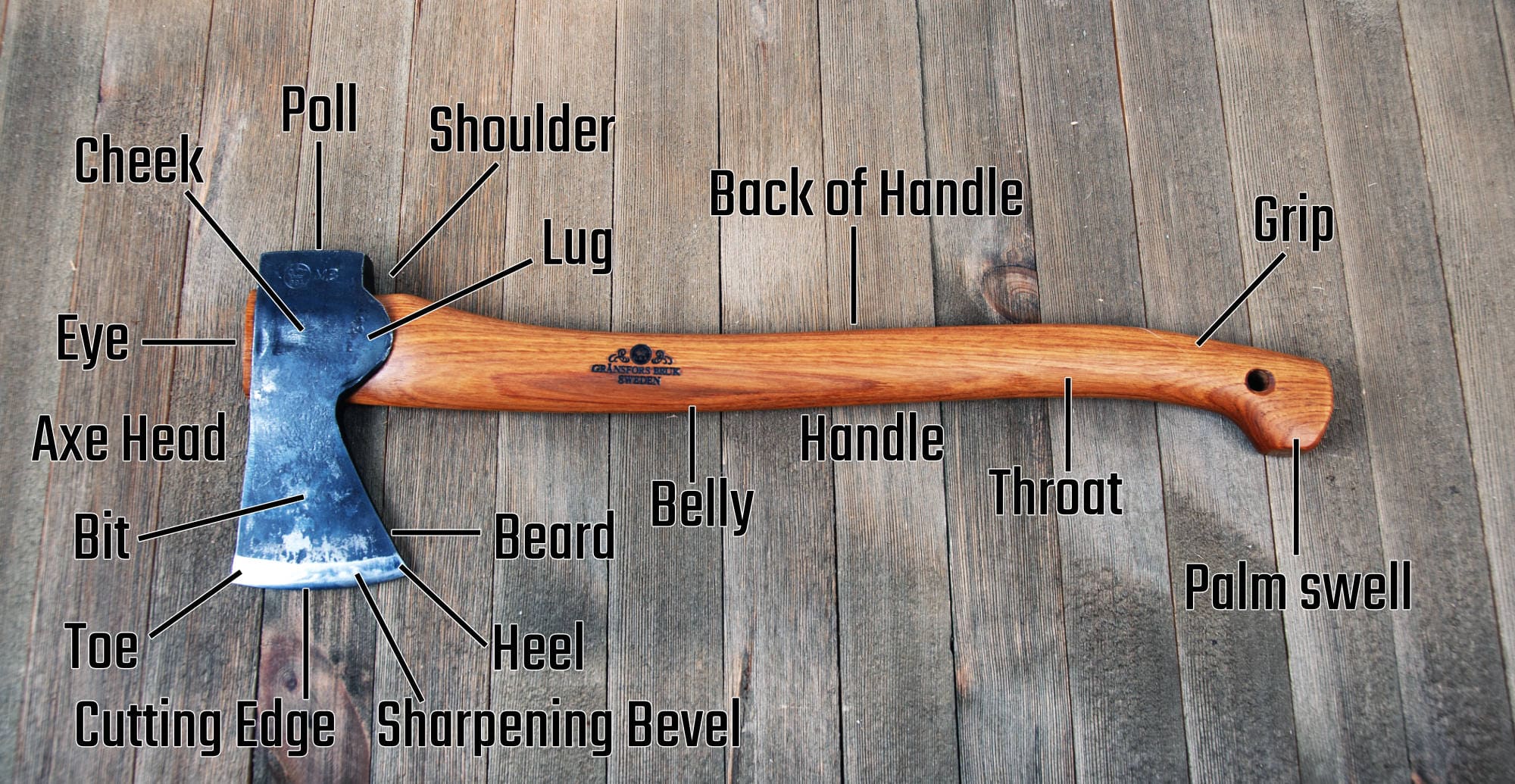
Anatomy of an Axe from Poll to Palm Swell Ancient Path
Beard - the concave portion of the bottom of the axe bit near the handle; beards can very shallow, deep, or in between Handle - the entire portion of where the axe is held Body of the handle - typically near the center of the handle where your upper most hand would hold it Back of handle - the entire back of the handle
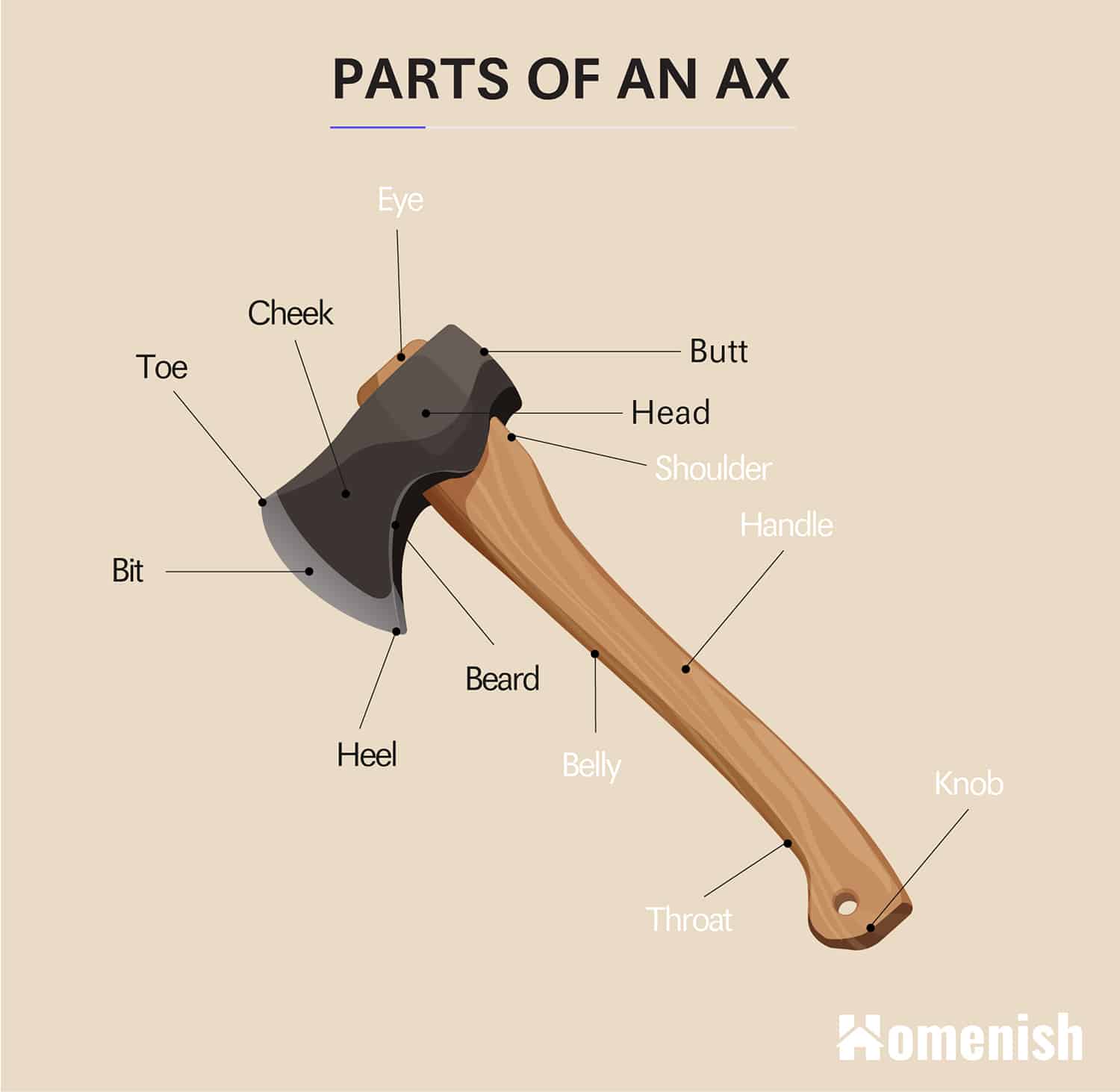
Parts of an Ax with Illustrations Homenish
While the axe may look like a simple tool, it actually consists of eleven parts. The parts of an axe make up a powerful tool that's versatile and durable. But not all axes are created equal and the quality of these parts do and will have an impact on each particular model's performance.
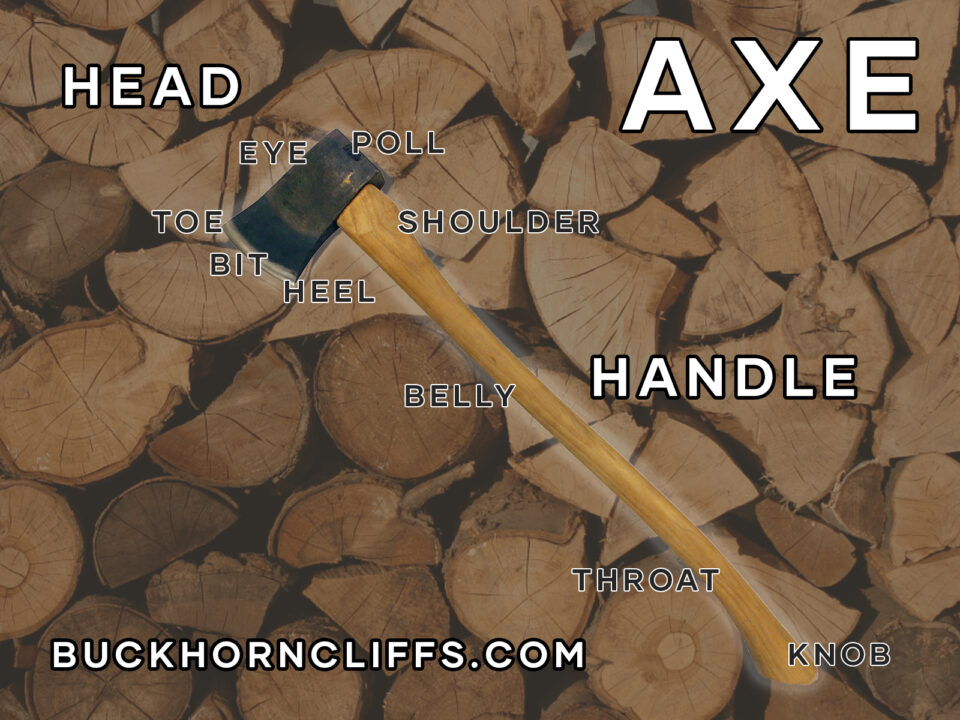
Hatchet vs. Axe (Differences, History, Anatomy)
An axe consists of two main parts: the axe head and the handle. The axe head features the cutting edge (blade), the butt (or poll), and the eye (hole for the handle). The handle, usually made of wood or composite materials, is designed for grip and leverage during use.

Best Survival Axes & Hatchets for Camping and Outdoors
Parts of an Axe An axe is broken down into two main parts: the head and the handle. Each of them has different smaller parts for various purposes. Parts of an Axe Head The axe head is often referred to as the business end of the axe, because it's the part that fulfills the tool's purpose. It functions as a mechanical wedge.

Parts of an Axe Axe, Function, Infographic
The diagram below shows an axe with its parts labeled. Some of these parts have basic, intuitive names, others, not so much. Felling Axe. This is the tool most people would picture in their head if asked to think of an axe and is what Paul Bunyan carried over his shoulder. It has a very sharp edge, a narrow head, and medium weight.
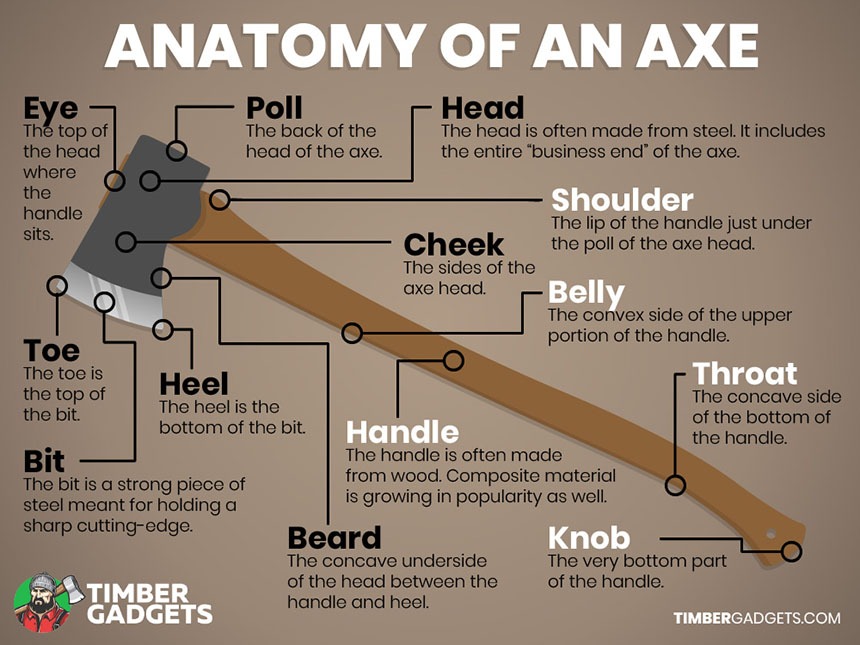
The Parts of an Axe Timber Gadgets
Parts of an axe head: Eye Cheek Toe Bit Heel Beard Butt Parts of an axe handle: Shoulder Belly Throat Grip Knob If you still have some axe anatomy questions, don't worry. In this post, we'll talk more about each part of an axe and what its purpose is.